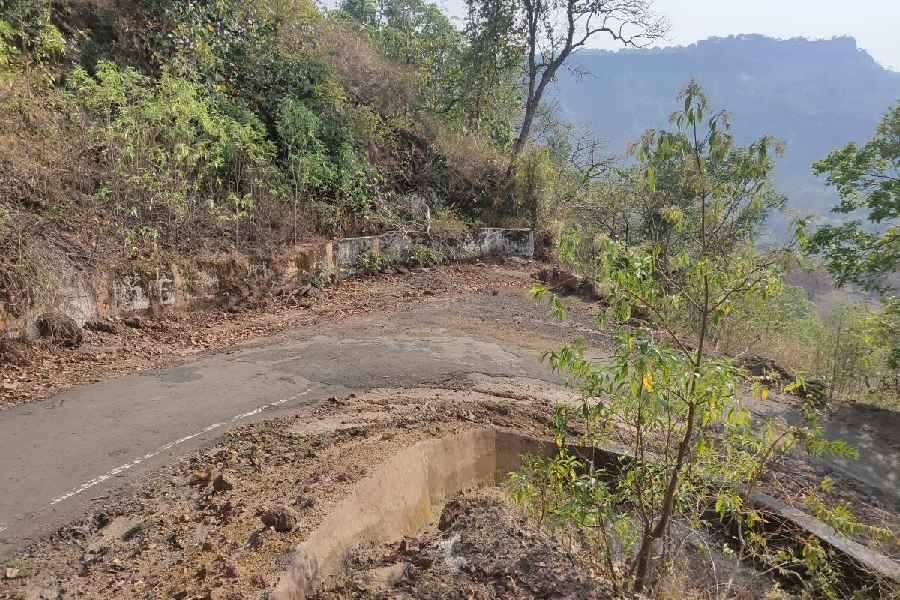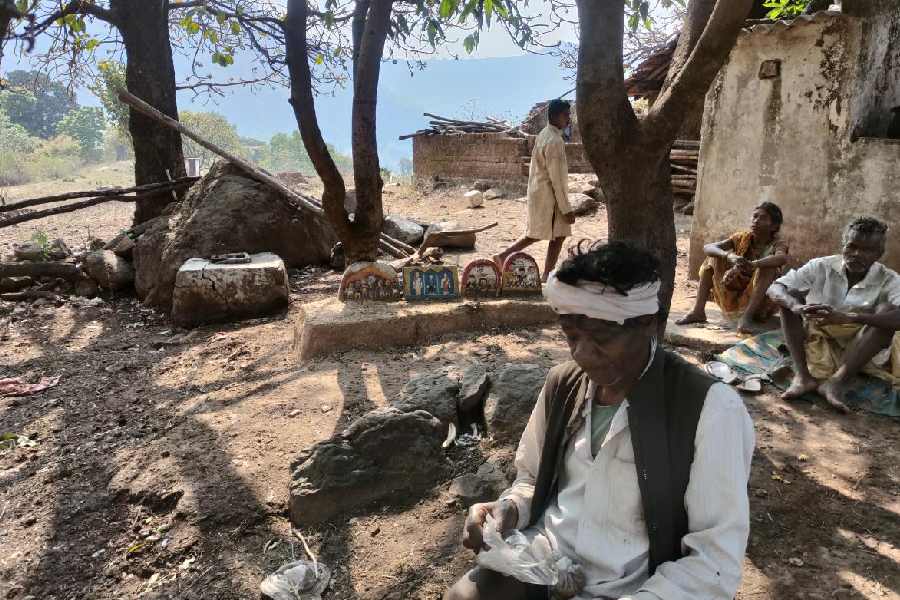Pipelines without water, solar panels without batteries, and roads where even ambulances don’t dare to enter. The primitive tribes living in Patalkot have mostly seen politicians’ poll pledges go unfulfilled over the years.
During the summers, in the gorge of Patalkot in Madhya Pradesh’s Chhindwara constituency, the sun makes an appearance only after 9am. Spread over 79sqkm, 400 metres below the heights of Tamia, successive governments have tried to promote Patalkot as a tourist destination, as it attracts people despite precarious dirt tracks and the absence of amenities.
The Gond and Bharia tribes — the latter is a designated Particularly Vulnerable Tribal Group (PVTG) — dwell in the 12 villages here, which goes to the polls on April 19. There are three polling stations for the 2,128 voters.
“They have fooled us by designating us special primitive tribes. What do we get out of it? The government has built healthcare centres here but only the nurses turn up regularly, not the doctors. They often ask me to stay here as the ‘in-charge’. I can only give tablets for fever to a patient,” Kapurchand, a former deputy sarpanch of Chimtipur, told The Telegraph.

The hairpin bend on the road down Patalkot where ambulances halt when visibility is low. Pheroze L. Vincent
Doctors are found at the health centre in Chhindi, just above the gorge.
Former chief minister Kamal Nath, whose son and Congress MP Nakul is eyeing his second term from the seat, often mentions in his campaign speeches that when he entered politics here in 1980, the tribes of Patalkot had not even tasted wheat. Since then, much water has flowed through the Doodhi river, the lifeline of the gorge.
Bare Lal Bharti was one of the 12 locals taken for the PVTG meet at the Rashtrapati Bhavan in 2023. He said the trip was his “acche din” and he is grateful to the Narendra Modi government but wants more for his family.
“They say Scheduled Tribes get jobs. My daughter has a Bachelor’s degree and a BEd, yet she is just a guest faculty in Pandhurna (near the Maharashtra border)… They have built roads here but they are so bad that ambulances won’t come down when it rains or at night. We carry patients on motorcycles, in hammocks, or on our backs to the hairpin bend where ambulances wait,” he said.
The prominent public infrastructures here are the residential schools run by the tribal welfare department.
The three teachers at the Government Integrated Secondary School in Chimtipur, which has 35 students till Class VIII, were out for a training programme when The Telegraph’s reporter visited the area. Caretakers at the school said that though the institution got pipes a year ago, the single-phase power connection wasn’t enough to pump water.
“Most of the days we use a small motor that takes three hours to fill a 500-litre tank, the water of which is used by the children. If we fall short, we draw water from the well,” one of the caretakers said.
Solar panels on the school’s roof haven’t had a working battery for more than two years, which means they can only power a few electric bulbs during daylight. The power connection with adequate voltage is only for a mobile phone network tower, said a few locals.
The inability to use pumps means crops such as maize, wheat, chickpeas, and a few varieties of lentils are rainfed with only a single harvest a year. The locals’ income is supplemented by mahua and gooseberries collected from the forests. The lack of employment has forced most men to work on farms in other districts.
Over the years, locals said, few election campaign teams have gone down the gorge to visit the 2,000-odd tribals.
“I am not sure which party I am in now. I was with the BJP but I am always with the Gondvana Gantantra Party. We have voted for Kamal Nath for years. What difference does it make?” Kapurchand asked.










